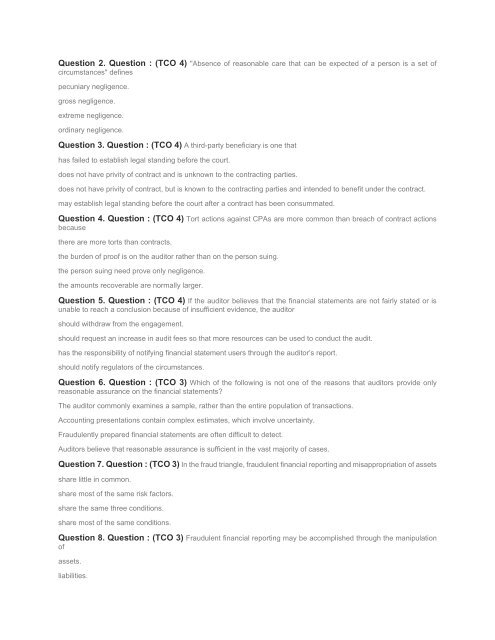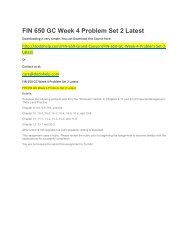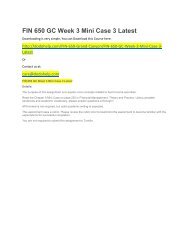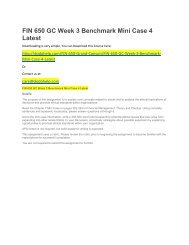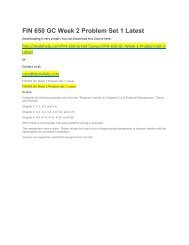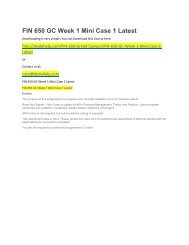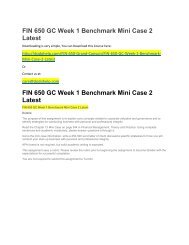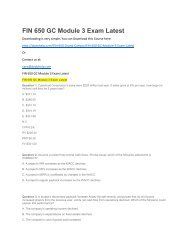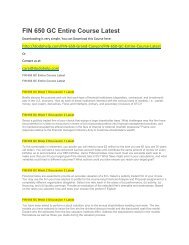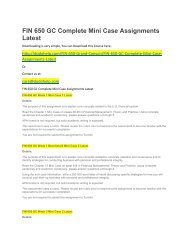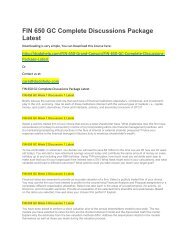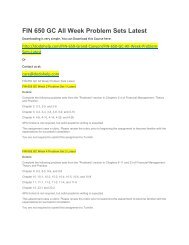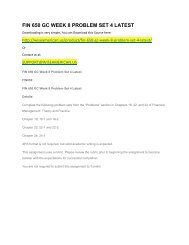ACCT 444 DeVry Week 2 Complete Work Latest
You also want an ePaper? Increase the reach of your titles
YUMPU automatically turns print PDFs into web optimized ePapers that Google loves.
Question 2. Question : (TCO 4) "Absence of reasonable care that can be expected of a person is a set of<br />
circumstances" defines<br />
pecuniary negligence.<br />
gross negligence.<br />
extreme negligence.<br />
ordinary negligence.<br />
Question 3. Question : (TCO 4) A third-party beneficiary is one that<br />
has failed to establish legal standing before the court.<br />
does not have privity of contract and is unknown to the contracting parties.<br />
does not have privity of contract, but is known to the contracting parties and intended to benefit under the contract.<br />
may establish legal standing before the court after a contract has been consummated.<br />
Question 4. Question : (TCO 4) Tort actions against CPAs are more common than breach of contract actions<br />
because<br />
there are more torts than contracts.<br />
the burden of proof is on the auditor rather than on the person suing.<br />
the person suing need prove only negligence.<br />
the amounts recoverable are normally larger.<br />
Question 5. Question : (TCO 4) If the auditor believes that the financial statements are not fairly stated or is<br />
unable to reach a conclusion because of insufficient evidence, the auditor<br />
should withdraw from the engagement.<br />
should request an increase in audit fees so that more resources can be used to conduct the audit.<br />
has the responsibility of notifying financial statement users through the auditor’s report.<br />
should notify regulators of the circumstances.<br />
Question 6. Question : (TCO 3) Which of the following is not one of the reasons that auditors provide only<br />
reasonable assurance on the financial statements?<br />
The auditor commonly examines a sample, rather than the entire population of transactions.<br />
Accounting presentations contain complex estimates, which involve uncertainty.<br />
Fraudulently prepared financial statements are often difficult to detect.<br />
Auditors believe that reasonable assurance is sufficient in the vast majority of cases.<br />
Question 7. Question : (TCO 3) In the fraud triangle, fraudulent financial reporting and misappropriation of assets<br />
share little in common.<br />
share most of the same risk factors.<br />
share the same three conditions.<br />
share most of the same conditions.<br />
Question 8. Question : (TCO 3) Fraudulent financial reporting may be accomplished through the manipulation<br />
of<br />
assets.<br />
liabilities.


